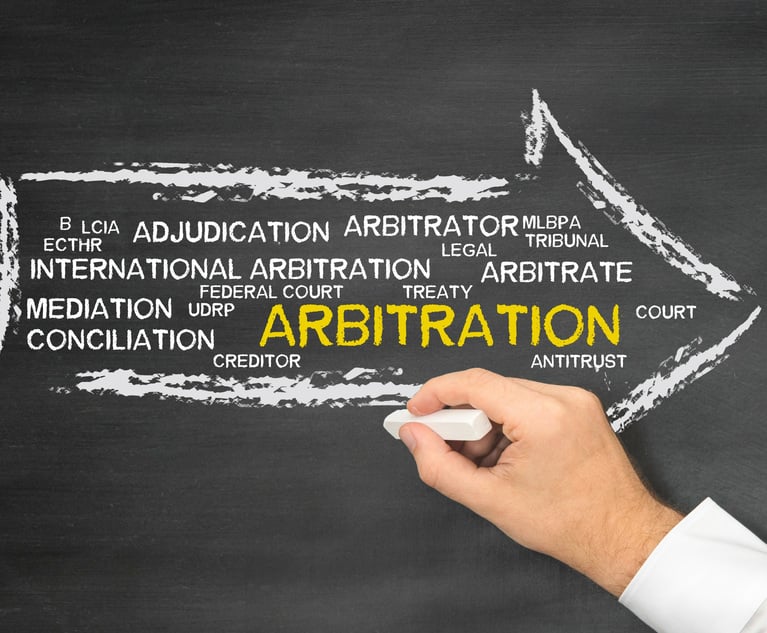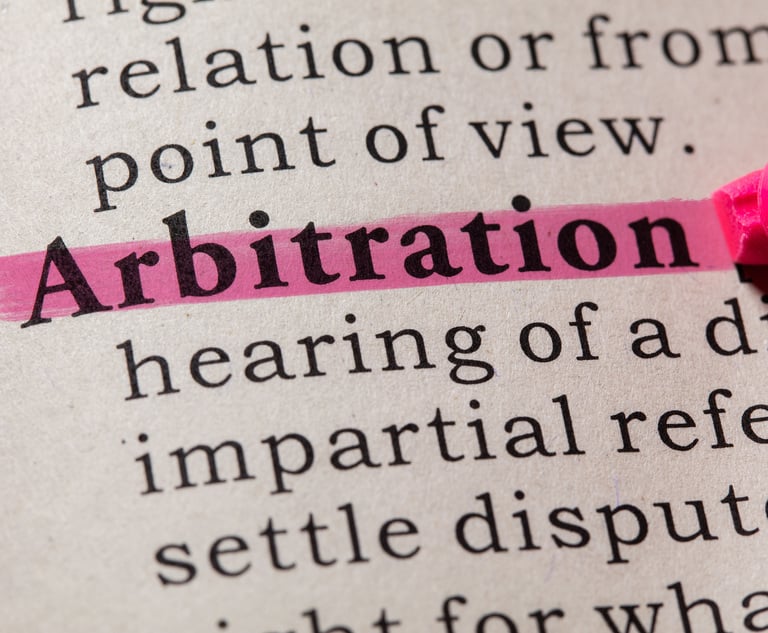David N Cinotti

May 07, 2024 | New Jersey Law Journal
Third Circuit Overlooks Jurisdictional Problem in New Jersey Insurance Fraud Claims Decision"The Third Circuit clearly had appellate jurisdiction to decide the first two issues, but it did not have jurisdiction under the FAA to decide the third issue," writes David N. Cinotti of Pashman Stein Walder Hayden.
By David N. Cinotti
10 minute read

May 01, 2024 | New Jersey Law Journal
What to Know About New Jersey Courts Ruling in 'Quasi-in-Rem' Jurisdiction Case for Arbitral Awards"A judgment-debtor should reasonably expect to be haled into court to satisfy a judgment where it has assets," writes David N. Cinotti of Pashman Stein Walder Hayden.
By David N. Cinotti
10 minute read

March 26, 2020 | New Jersey Law Journal
Federal Challenge to NJ's Immigrant Trust Directive Could be Undermined by Its Own ArgumentsThe federal government's successful support for Kansas, in 'Kansas v. Garcia,' might hurt its case against New Jersey's Immigrant Trust Directive.
By David N. Cinotti
9 minute read

November 19, 2019 | New York Law Journal
'Fiorilla' Decisions Undermine Enforceability of Arbitral Awards in NY State CourtsNew York courts have generally taken a pro-arbitration approach. A series of decisions in a long-running investor-broker dispute, however, is counter to that trend.
By David N. Cinotti
10 minute read

October 24, 2019 | New Jersey Law Journal
When the Government Lies: Pretext Claims in Times of Extreme PartisanshipThe U.S. Supreme Court's current and recent terms include multiple cases concerning whether federal law tolerates government duplicity. An important issue is whether the judiciary can question the truthfulness of government actors' explanations.
By David N. Cinotti
9 minute read

July 19, 2019 | New Jersey Law Journal
SCOTUS Reversal of Precedent Provides Right to Federal Forum in Takings CasesIn 'Knick v. Township of Scott,' the Supreme Court held that takings plaintiffs no longer must seek compensation in state court when they claim that the government has taken their property without paying for it.
By David N. Cinotti
9 minute read
Trending Stories
- 1Buyer Beware:Continuity of Coverage in Legal Malpractice Insurance
- 2‘Listen, Listen, Listen’: Some Practice Tips From Judges in the Oakland Federal Courthouse
- 3BCLP Joins Saudi Legal Market with Plans to Open Two Offices
- 4White & Case Crosses $4M in PEP, $3B in Revenue in 'Breakthrough Year'
- 5Thursday Newspaper



